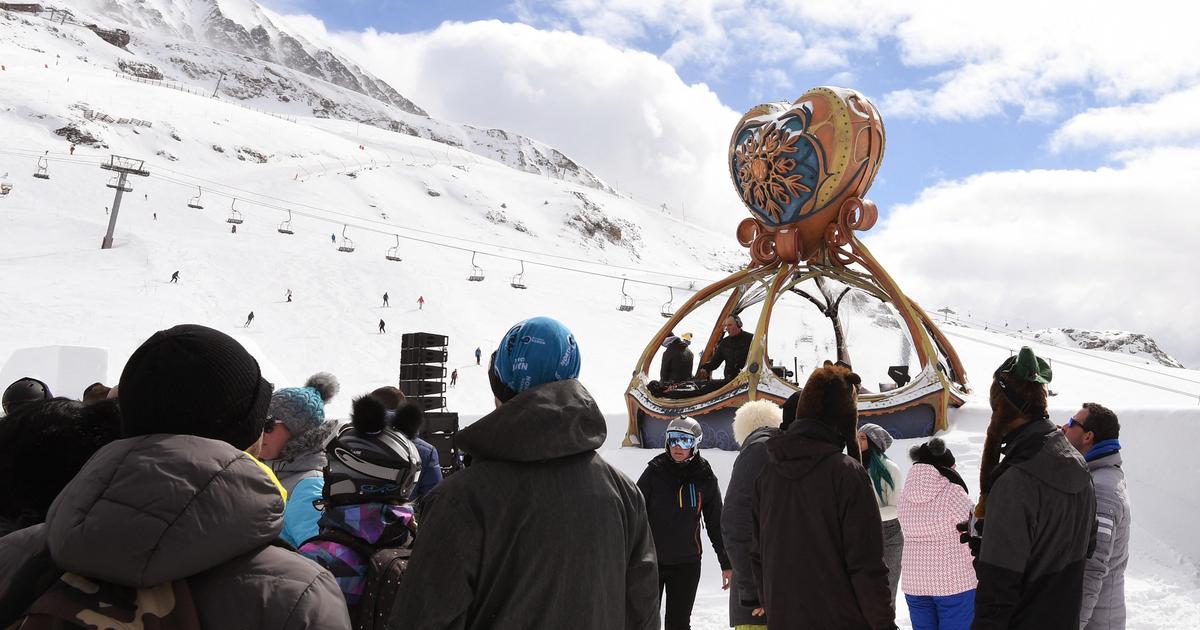Almost a century ago, in the summer of 1936, the French working class achieved the greatest social advances in its history.
After months of strikes, a coalition of left-wing parties, the Popular Front, wrested wage increases, union protection, reduced working hours and paid vacations from the bosses.
All these things are among the greatest social and material achievements achieved in France, but they also have a profoundly symbolic and immaterial dimension, because, for the first time, workers were able to go by the sea.
Access to the coast, previously reserved for the bourgeoisie, transformed the perspectives of the most modest, which until then were limited to the places where they lived:
the neighborhoods and municipalities of the large industrial zones for the workers and the countryside for those who were not yet called “rural population”.
Thanks to this geographical and cultural advance, the working classes broadened their horizons, broadened their field of vision, and began to be visible not only as indispensable cogs in the economy, but also as an inescapable cultural ensemble.
Nearly a hundred years later, that symbolic victory is falling apart.
From the Normandy coast to the Basque Country, the French coasts are once again being closed to the working classes.
In the last 20 years, real estate prices have skyrocketed on all coasts.
No municipality is spared.
It must be said that, since the 2020 health crisis, the upper classes have bought a lot.
The original fishermen's cabins are today the homes of urban executives looking for a "refuge" in which to rest or telework.
This rise in real estate has the same social effects everywhere: a return to square one, to the 19th century,
because the humble classes have been left without access to the sea —which is once again the private preserve of the bourgeoisie— and the means to live in the coastal strip and are taking refuge in rural areas.
As a consequence, the youth of the popular classes can no longer live in the place where they were born.
A fact that reminds us of what the poorest in the big cities of Western countries have endured for several decades.
From Paris to London, from Barcelona to Stockholm, there is the same mechanism that has expelled them from the big cities.
So, for the first time in Western history, the working and middle classes have stopped living where jobs and wealth are created.
A fact that reminds us of what the poorest in the big cities of Western countries have endured for several decades.
From Paris to London, from Barcelona to Stockholm, there is the same mechanism that has expelled them from the big cities.
So, for the first time in Western history, the working and middle classes have stopped living where jobs and wealth are created.
A fact that reminds us of what the poorest in the big cities of Western countries have endured for several decades.
From Paris to London, from Barcelona to Stockholm, there is the same mechanism that has expelled them from the big cities.
So, for the first time in Western history, the working and middle classes have stopped living where jobs and wealth are created.
The loss of those places is only the tip of the iceberg of the great dispossession suffered by the majority, ordinary people, not only of what they have, but —what is more serious— of what they are.
The middle and working classes are no longer at the center of wealth creation in any Western country;
That position is now occupied by the upper classes, who are overrepresented in the metropolis.
The popular classes, having lost their crucial role in the economy, have ceased to be producers to become consumers and, many times, recipients of social assistance.
And that dispossession is even more violent to the extent that, at the same time, they have lost a fundamental status: that of political and cultural reference.
That is the basis of the democratic malaise that is shaking all democracies today and that explains the peculiarities of the political, social, and cultural contestation that Western countries have been experiencing for the past 20 years.
Because the current protests do not resemble any social movement of previous centuries.
They are not led by any party, union, or leader, but by ordinary people.
Some consider them “social”, leftist, extreme left or Marxist protests and others think they are “identitarian”, right wing, extreme right or populist.
But the truth is that it seems impossible to label them.
Of course, this popular response does not belong to those who have forgotten the people and have set them aside.
Neither the politicians, nor the unions, nor the world of culture, nor the intelligentsia.
It is not exclusive to any side, neither the left, nor the right, nor the extremes.
Neither does he defend the comfortable “old-fashioned class struggle”,
born of a conscious conflict between economically and culturally integrated categories and, therefore, represented in politics.
It does not fit into any pre-established sociological or ideological framework.
This revolt is not driven by class consciousness, but because people have been stripped of their prerogatives, pushed bit by bit to the edge of the world.
Its strength and serenity derive from its long-term integration.
For this reason, this movement upsets the defenders of the perpetual present and permanent agitation.
Its underlying motives —and this is its specificity— are not only material, but, above all, existential.
Its immaterial dimension makes it unstoppable and incomprehensible to the ruling classes, accustomed to solving everything in a "material" way, based on checks.
Contrary to what is said, the protest also does not distinguish between those who struggle to “make ends meet” (ordinary people) and those who worry about “the end of the world” (intellectuals).
On the contrary, it establishes a drastic contrast between those who bombard us with the illusory image of a beneficent model while protecting themselves from its harmful effects and those who truly face alterity, both the social exclusion of a system that increasingly encourages inequality and precarious life as cultural alterity.
This new “social movement” is not a rehash of
Les Miserables
, it is not an uprising of the “poor”.
Neither does it intend to acquire new social rights.
It does not aspire to a "new world", but quite the opposite, to the continuation of the old, a world in which the majority, ordinary people, continued to be in the "center".
At the center of the economy, at the center of the concerns of the political class and at the center of cultural representations.
The peculiarity of this revolt of the middle and working classes is that it is not born from any ideology, but from a primary, vital force, produced by the fundamental experience of existence, from a daily struggle that allows us to face reality with energy and not with systems.
This movement, which is based on an original act of rebellion (“no to the dominant story”), cannot be limited to the narrowness of technocratic analysis.
Thus, regardless of the prevailing moralisms, ordinary people have forged the cultural base, the fulcrum on which to reconstruct a model that makes sense.
The middle and working classes are frequently accused of letting themselves be carried away by sad passions and preparing a discourse against the elites.
This simplistic analysis hides the true nature of a movement that is not “against” but “somewhere else”.
Autonomous, impervious to the harangues of those who dispossess them as to how they should survive and behave, the dispossessed no longer turn to the “elites”, whom they consider powerless and ridiculous, but to society as a whole.
Driven by the instinct of survival, this existential appeal that blows up the story of those who promised us the best of all worlds has only one goal: to rebuild everything by returning to the social and cultural realities of ordinary life.
Christophe Guilluy
is a geographer and author of
No society: the end of the western middle class
(Taurus).
Translation by
María Luisa Rodríguez Tapia.
Subscribe to continue reading
Read without limits
Keep reading
I'm already a subscriber

/cloudfront-eu-central-1.images.arcpublishing.com/prisa/DQ2MKGG4NRBRLPFAR2ZC7UGG3Q.jpg)







/cloudfront-eu-central-1.images.arcpublishing.com/prisa/YVK4HZAFDKHYPX5IOZ5XKJSHDA.jpg)